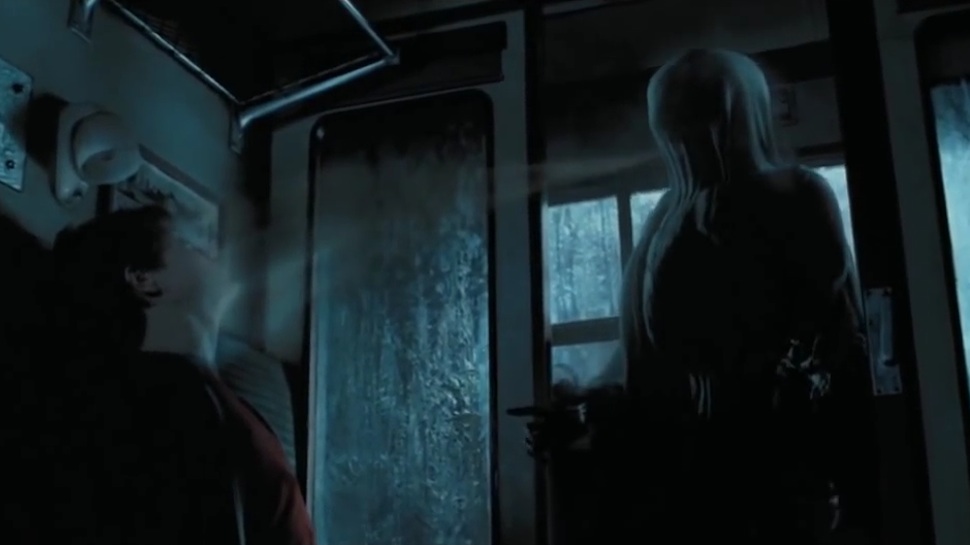*I do not own Harry Potter, therefore, mention of characters/concepts are solely intended for educational and therapeutic gain.*
J.K. Rowling has been open about her struggle with Major Depression, describing emptiness and a lack of hope. Many have likened her description of dementors to depression, creatures who suck the life and happiness out of anyone nearby. They are employed by the ministry of magic to deliver a “dementor’s kiss” to criminals sentenced to a fate worse than death. A dementor’s kiss involves having one’s soul sucked out, leaving behind a shell of a body to wander the earth for eternity. Dementors have been described with black cloaks, scabbed skin, skeletal bodies, and rancid, rattling breath. They feed off of emotion, however, are unable to withstand happiness. Dementors cause individuals to feel as if they will never be happy again and all warmth is extinguished from the body. Chocolate is used in the Harry Potter series to help with the after-effects of a dementor encounter, described to return warmth and feeling back to the body. In the muggle world, science often debates the potential relationship between chocolate and depression (whether it helps, hurts, or is simply a marker as a comfort food).
In the DSM-V, Depression occurs in episodes containing 5 or more of the following symptoms within at least a 2 week period of time: Anhedonia/lack of interest in activities previously enjoyed, hypersomnia/insomnia, chronic fatigue, frequent thoughts about death or dying, increased or decreased appetite, social isolation, frequent tearfulness, feelings of worthlessness, hopelessness, or helplessness, difficulty concentrating, body feels slowed down or agitated, and feeling sad/empty.
In the books, dementors have been demonstrated to affect some more than others. In particular, Harry experienced true horrors in his past, therefore, he was affected strongly by dementors, often fainting while hearing the voice of his screaming mother upon her death. Due to his heightened susceptibility, Harry works with Remus Lupin to learn how to repel dementors (actually a boggart) using the patronus charm. A patronus charm is a wisp of light created by thinking of a very strong, extraordinarily happy memory, while saying the incantation: “Expecto Patronum”. This charm has been described as very advanced and difficult to produce, however, when done properly, takes the form of an animal or creature. If you are unsure what your patronus form would be, go on pottermore.com to take the patronus quiz.
The idea of using a patronus charm for combating depression serves to remind and provide perspective in contrast to depression’s strangling grasp. While it cannot entirely alleviate a depressive episode, it encourages positive memories to balance out the negative thoughts invoked by depression. Comparing symptoms of depression to characteristics of dementors paints a relatable picture for readers of Harry Potter. If you or someone you know identifies with some of the aforementioned symptoms, the following exercise could be helpful for managing thoughts and mood:
- Identify your current negative thoughts.
- Write them down on some paper or in a journal.
- Imagine your negative thoughts transforming into dementors with black cloaks, scabbed hands, and rancid, rattling breath.
- Take a moment to reflect on the emotions that the dementors impose.
- Transitioning to the next stage will be difficult, just like it was for Harry when he resisted collapsing each time: Now think of a few strong, positive, happy, loving, or peaceful memories. (Don’t let yourself minimize them!)
- Are some memories stronger than others?
- Write down as many as you can.
- What emotions come up when you conjure those memories?
- Write them down
- Are there any details of your memory that you noticed this time around?
- What did you see and experience?
- Imagine yourself reliving your special memory.
- Think of animals/creatures you identify with as a representation of you.
- Why did you think of them?
- What characteristics do you share?
- Picture the shape and appearance of your patronus.
- How does it move?
- How do you feel next to your patronus?
- Now re-experience your positive memory again and say (or think), “Expecto Patronum”.
- Allow yourself to feel the bliss and joy that lives in your memory.
- Imagine your patronus trampling the dementors, banishing them far away.
- Visualize your negative thoughts breaking apart from the dementors as they flee. Your newly detached thoughts disintegrate along with your depression.
- Write down how you feel after completing this exercise.
- How would your life be without those negative thoughts?
Please note that these therapy exercises do not qualify as stand-alone treatments and it is recommended that you seek help from a licensed professional mental health provider.
Thank you for reading this Harry Potter psychotherapy exercise. For personalized professional support, please contact me to schedule an appointment at:
E-mail: jmorris@jmmhc.com
Voicemail: (248) 327-4643








Recent Comments